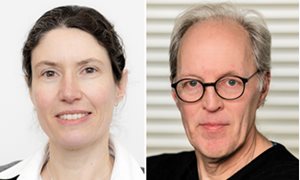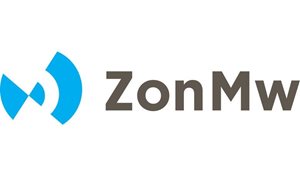 My name is Harm Westdorp and I have a Dutch background. I am a clinical PhD candidate at the Department of Tumor Immunology in the group of Jolanda de Vries, theme Cancer development and immune defense. My work focuses on translational studies with dendritic-cell based immunotherapy in prostate cancer and on immunomonitoring in different cancer types (prostate cancer, Lynch syndrome and melanoma).
My name is Harm Westdorp and I have a Dutch background. I am a clinical PhD candidate at the Department of Tumor Immunology in the group of Jolanda de Vries, theme Cancer development and immune defense. My work focuses on translational studies with dendritic-cell based immunotherapy in prostate cancer and on immunomonitoring in different cancer types (prostate cancer, Lynch syndrome and melanoma).
When you were a kid what did you want to be when you grew up? Can you tell us something about your child years.
I grew up in Sint-Annaland, a small village in the province of Zeeland. At the end of my secondary school I knew I wanted to study a medical science. As a child, I never thought I would become a medical doctor/scientist. Actually, I did not really have strong ideas about future professions.At my primary school I did a lot of sport activities. I played table tennis on national level. And I used to live two kilometers away from the beach, so I went swimming a lot.
What was your previous academic training, where did you study and why that study?
I studied medicine at the Radboud university medical centre here in Nijmegen. My medicine study took place from 2004-2010. I knew I wanted to care for vulnerable people and this stimulated me to study hard.The RIMLS motto is “Today’s molecules for tomorrow’s medicine”. What does this mean for you?
This motto is really key in my daily work. I try to optimize the efficacy of the dendritic cell vaccine. This progress will eventually lead to improved dendritic cell-based immunotherapy for the patients.Who is your great example as scientists? And please give a motivation why.
My great example as a scientist is Carl Figdor. Carl is a pioneer in the field of dendritic cell research and made it possible to perform translational trials with dendritic cells in human patients.Which research discovery that you have made has made you most proud?
In the previous decade dendritic cell-based immunotherapy was performed in (eye) melanoma and colorectal cancer patients. Back in 2013 I started at the department of Tumor Immunology to design a dendritic cell-based trial for advanced prostate cancer patients. After studying the different tumor-associated antigen in prostate cancer I selected the most appropriate ones for dendritic cell loading.Currently, the clinical trial is ongoing and I have seen a number of clinical responders to dendritic cell treatment in patients with prostate cancer.
Given unlimited finance what experiment would you perform?
I would treat more early stage patients in translational trials studying the effect of dendritic cell vaccination in combination with other immunotherapies. I think this is the way to go in order to overcome immunosuppressive effects of myeloid-derived suppressor cells and T regulatory cells and increase antitumor immunity.What does your working area (desk, office) look like and what does it say about you (or your research)?
Quite messy :-). Hopefully, this is not a reflection of how I do my research.Nominate a colleague to be in the spotlight and what would you like to ask him or her?
I nominate Shabaz Sultan, computational PhD candidate at the Department of Tumor Immunology. I would like to ask Shabaz: to what extent do you think computers are going to replace human beings in the field of medical biology?You are nominated by Minke Smits.
I would like to nominate Harm Westdorp, fellow PhD candidate, working on DC vaccinations. What do you think the role of dendritic cell vaccinations will be in cancer in general (not only melanoma or prostate cancer)?Your answer is:
For a subset of patients dendritic cell vaccination is very effective. We have seen this in melanoma patients and also in our ongoing trial in prostate cancer. However, we are not able to identify responders from non-responders yet. Current research focuses on understanding mechanisms of dendritic cell therapy resistance. I think that dendritic cell vaccination will proof benefit for immunogenic cancer types. Both as monotherapy in early stage disease and as combination therapy with less specific immune checkpoint inhibitors in advanced disease.What type of person are you, quick insights:
a) Mac or PC? : PCb) Theater or cinema? : Cinema
c) Dine out or dine in? : Dine out
d) Ferrari or Fiat? : Aston Martin
e) Shopaholic or chocoholic? : Chocoholic :-)
f) Culture or Nature : Both
Related news items

ZonMw Open Competition Grant for Annemiek van Spriel and Piet Gros
15 June 2021 Annemiek van Spriel, theme cancer development and immune defense, together with Piet Gros, Dept. of Chemistry, Utrecht University obtained a ZonMw Open Competition Grant to investigate IL-6 receptor structure and signalling in tumor cells. go to page
HFSP Grant for Johannes Textor
30 March 2020 Johannes Textor, theme Cancer development and immune defense, has been awarded a program grant of 1 million US dollars by The Human Frontier Science Program (HFSP) to investigate how T cells navigate extremely dense environments using experiments, modeling and methods from pedestrian dynamics. go to page
Human pDCs attract cytolytic lymphocytes in anti-cancer vaccination
6 February 2020RIMLS researchers Jasper van Beek and Jolanda de Vries, theme Cancer development and immune defense, discovered that pDCs can efficiently recruit cytolytic immune effector cells, a property that could be exploited in anti-cancer vaccines. They have published these findings in Cell Reports.
go to page
ZonMw funding for teams of Michiel Vermeulen and Jolanda de Vries
4 February 2020The awarded research projects of RIMLS researchers Michiel Vermeulen, Jolanda de Vries, Gerty Schreibelt and Martijn Verdoes and colleagues will initiate new research lines and collaborations between various research groups.
go to page
Niels Stensen Fellowship for Jorieke Weiden
6 January 2020 Jorieke Weiden was recently awarded a grant from the Niels Stensen Fellowship. Since the 1960s, the Niels Stensen Fellowship has been awarded annually to outstanding researchers who recently received their PhD to enable them to gain research experience at a top university or institute abroad. go to page
